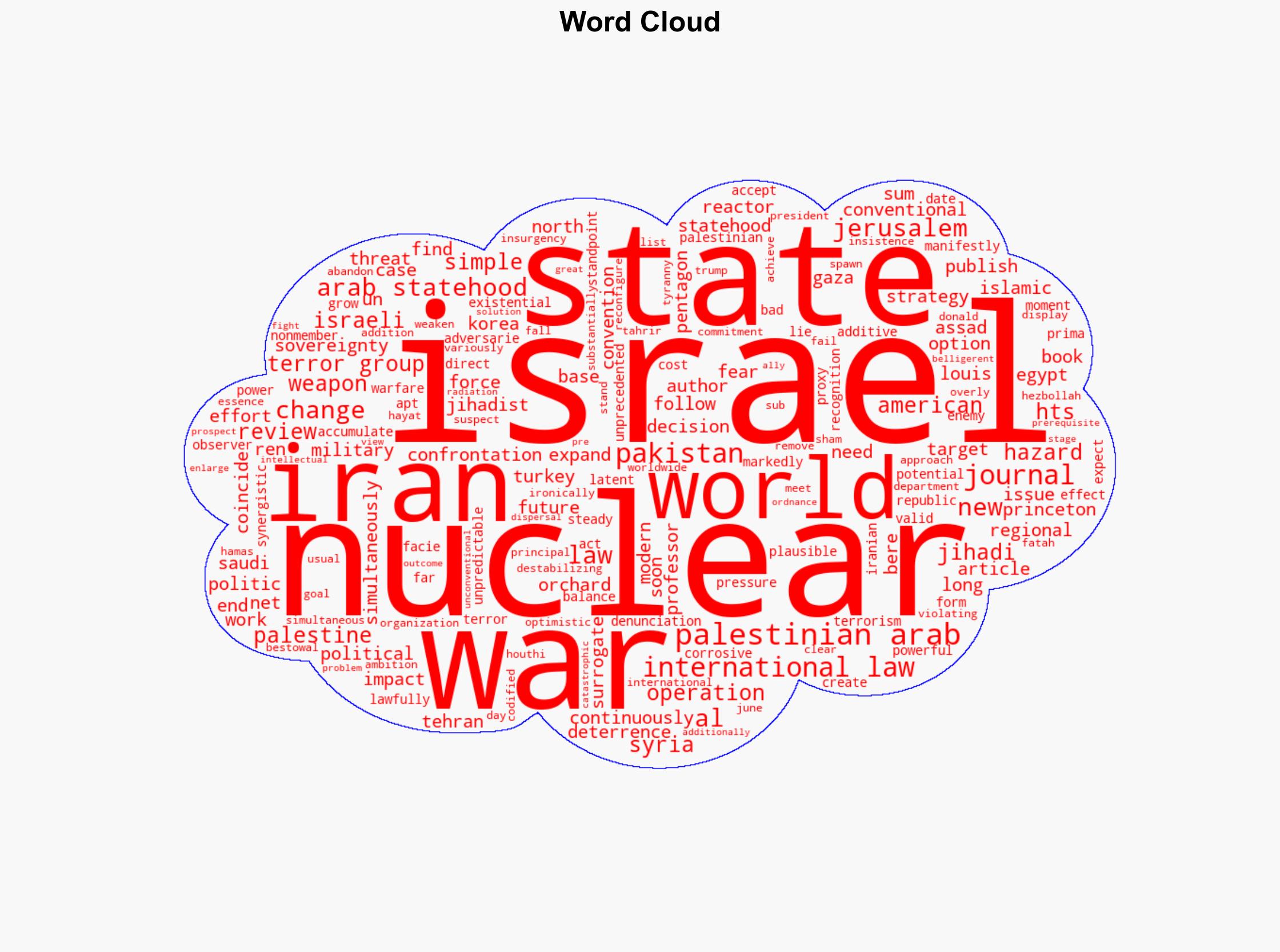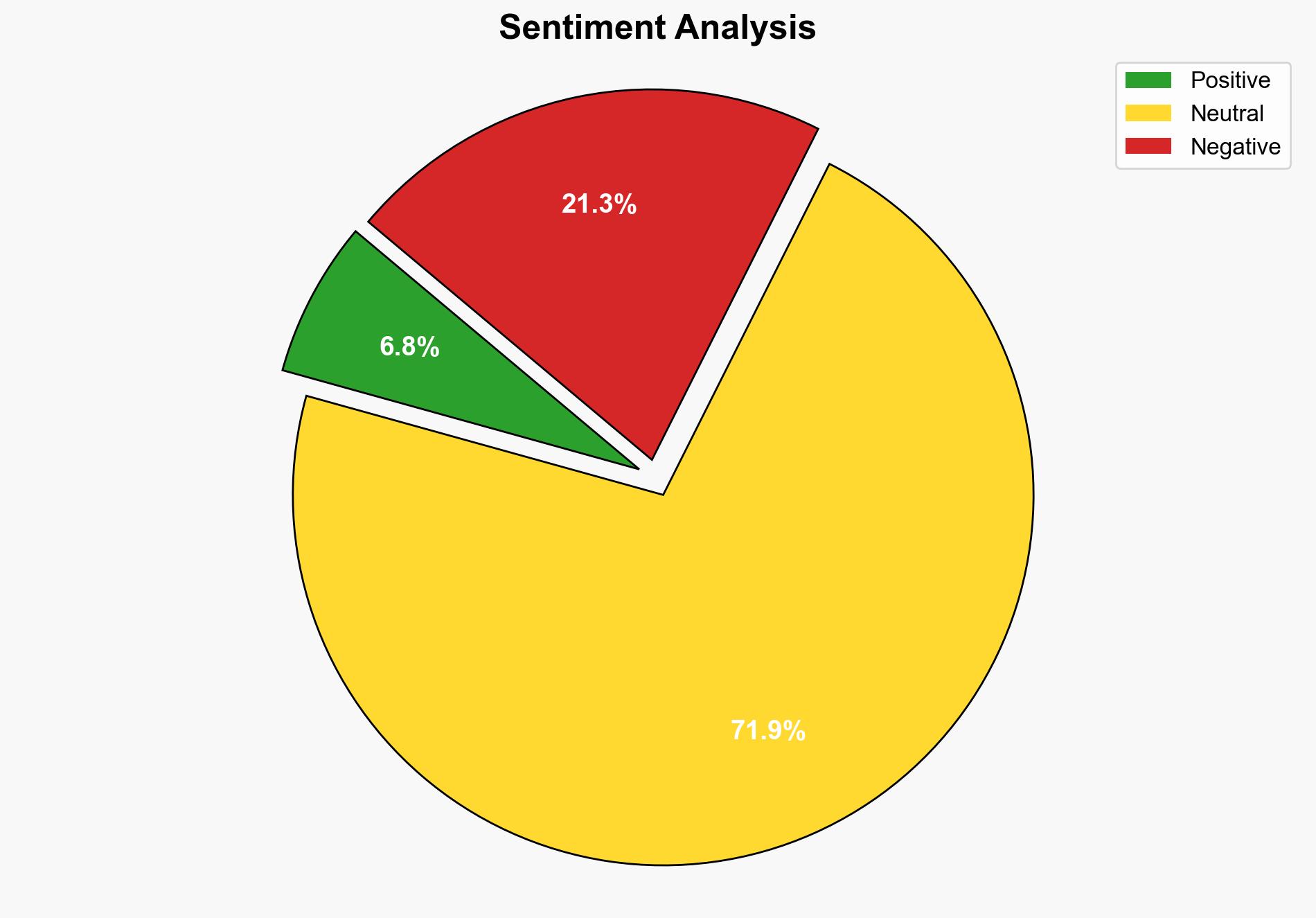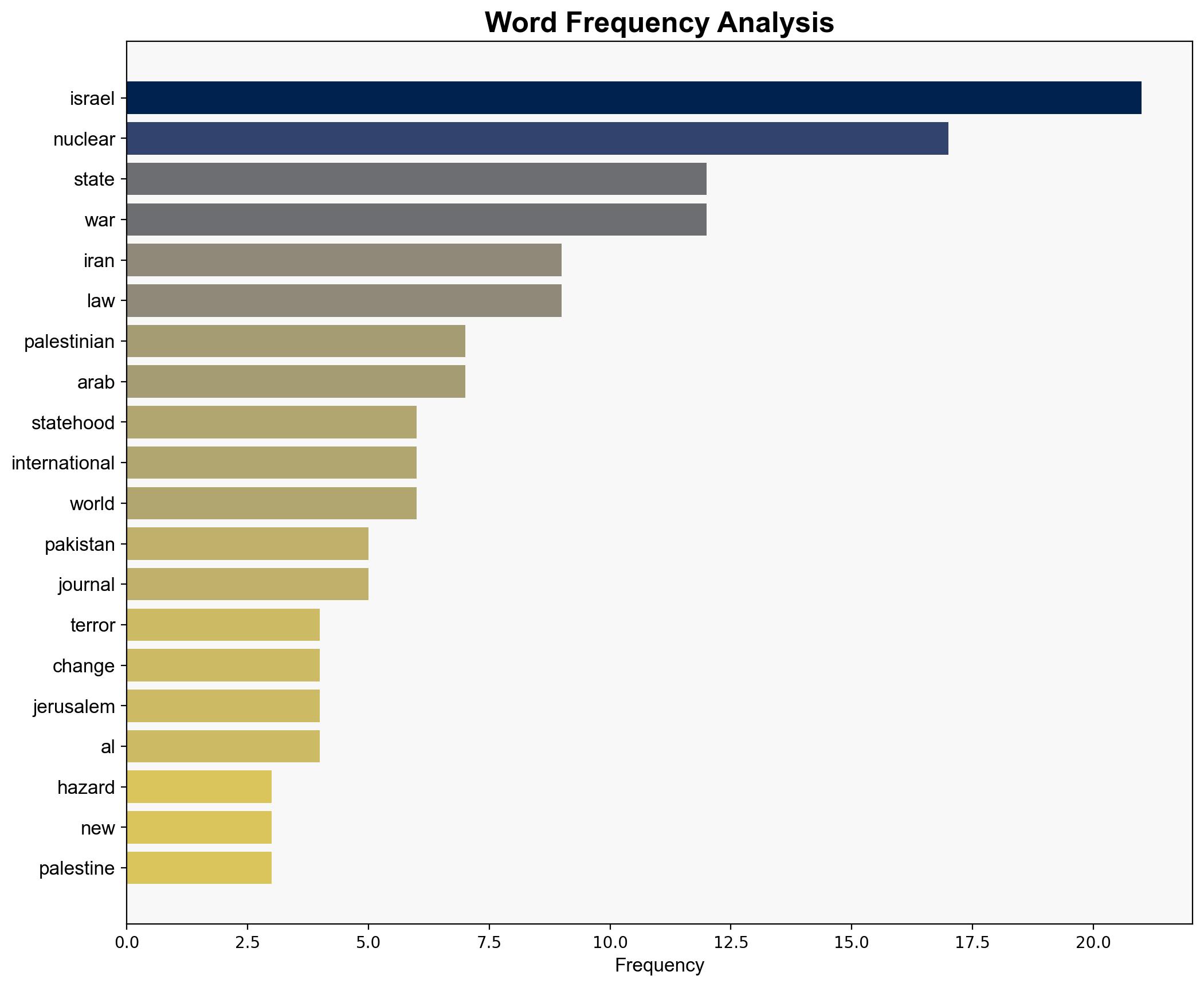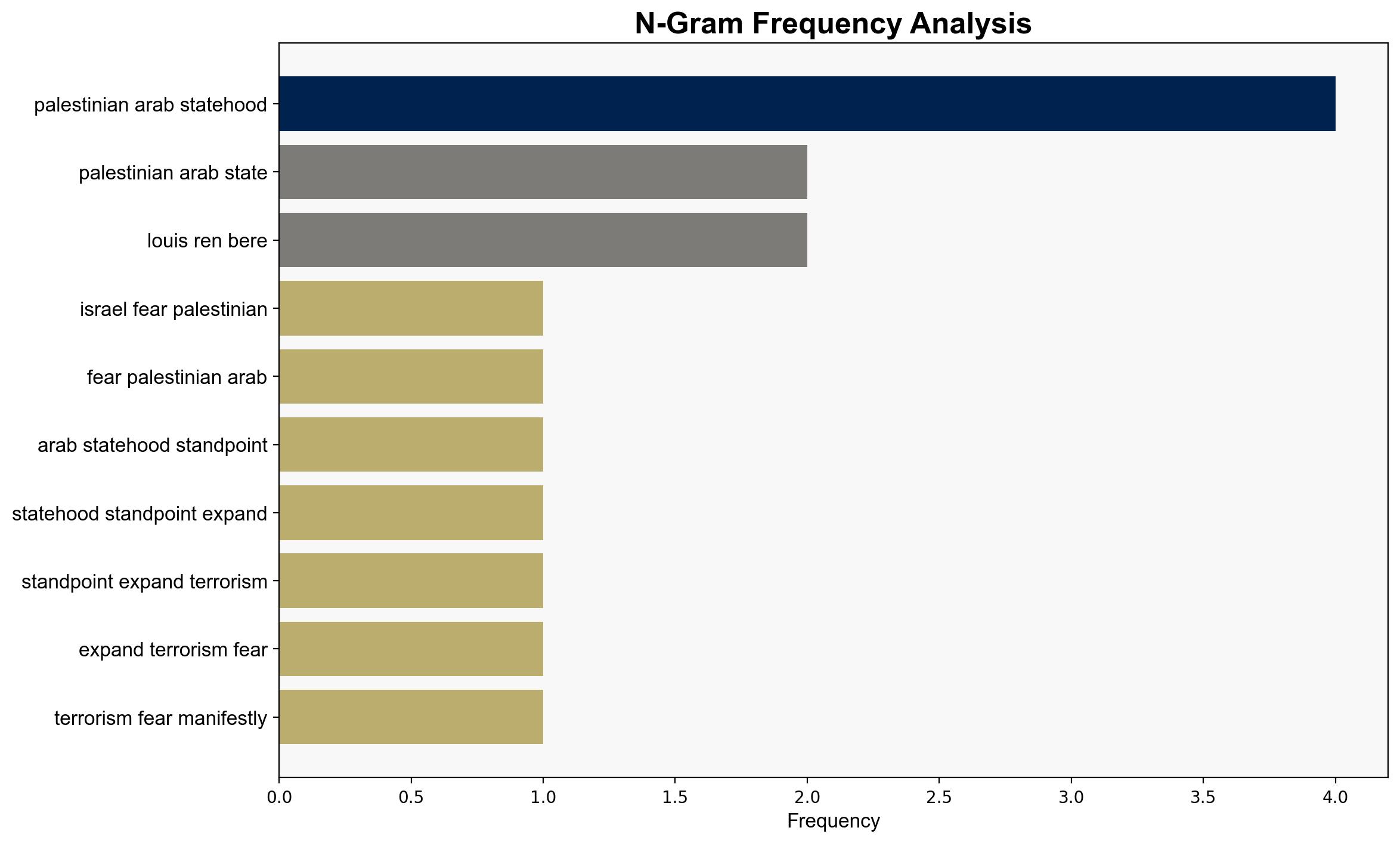Palestine – a force multiplying hazard to Israel – Israelnationalnews.com
Published on: 2025-08-10
Intelligence Report: Palestine – a Force Multiplying Hazard to Israel – Israelnationalnews.com
1. BLUF (Bottom Line Up Front)
The most supported hypothesis is that the establishment of a Palestinian Arab state could exacerbate existing regional tensions and increase security threats to Israel, particularly through enhanced coordination among hostile entities. Confidence Level: Moderate. Recommended action includes enhancing diplomatic efforts to mitigate potential threats and reinforcing regional alliances to counterbalance adversarial influences.
2. Competing Hypotheses
Hypothesis 1: The establishment of a Palestinian Arab state will significantly increase security threats to Israel by enabling greater coordination among regional adversaries, including Iran and jihadist groups like Hamas and Hezbollah.
Hypothesis 2: The creation of a Palestinian Arab state could lead to a stabilization of the region by addressing longstanding grievances, potentially reducing the impetus for conflict and weakening the influence of extremist groups.
Using ACH 2.0, Hypothesis 1 is better supported due to the current geopolitical dynamics and historical patterns of conflict escalation in the region. The presence of multiple adversarial entities with vested interests in destabilizing Israel aligns with this hypothesis.
3. Key Assumptions and Red Flags
– Assumption: A Palestinian state would align with Iran and other adversarial entities against Israel.
– Red Flag: Over-reliance on historical patterns without considering shifts in political alliances or internal dynamics within Palestinian territories.
– Potential Bias: The source may have a predisposition towards emphasizing threats over potential diplomatic solutions.
– Missing Data: Lack of detailed analysis on the internal political dynamics within a potential Palestinian state and its impact on regional alliances.
4. Implications and Strategic Risks
– Potential for increased military confrontations involving Israel and regional adversaries.
– Risk of nuclear proliferation if regional powers perceive an imbalance in military capabilities.
– Economic destabilization due to heightened security concerns and potential sanctions or embargoes.
– Escalation of cyber warfare as adversaries seek to exploit vulnerabilities in Israel’s infrastructure.
5. Recommendations and Outlook
- Enhance intelligence-sharing and military cooperation with regional allies to counterbalance adversarial influences.
- Engage in proactive diplomacy to address potential grievances and reduce the likelihood of conflict escalation.
- Scenario Projections:
- Best Case: Diplomatic efforts lead to a peaceful coexistence, reducing regional tensions.
- Worst Case: Coordinated military and cyber attacks by adversaries lead to a prolonged conflict.
- Most Likely: Increased regional tensions with sporadic conflicts and ongoing diplomatic negotiations.
6. Key Individuals and Entities
– Donald Trump (mentioned in context of previous diplomatic efforts)
– Hamas, Hezbollah, Houthi, Fatah (regional groups with potential impact)
– Iran, North Korea, Pakistan (countries with strategic interests in the region)
7. Thematic Tags
national security threats, cybersecurity, counter-terrorism, regional focus





